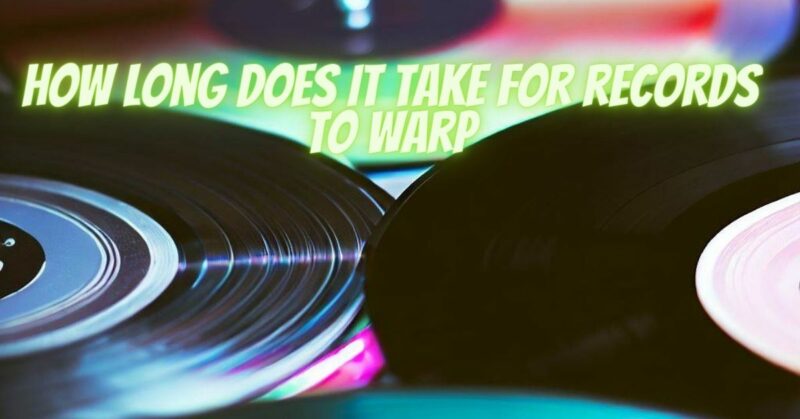Vinyl records, beloved for their warm sound and tactile appeal, are susceptible to warping, which can compromise their playability and sound quality. The timeline for a record to warp depends on various factors, including environmental conditions, storage practices, and record quality. In this article, we will explore these factors and provide insights into how long it may take for records to warp.
Environmental Factors:
Environmental conditions play a significant role in the warping process of vinyl records. Heat and humidity are the primary culprits behind record warping. Prolonged exposure to high temperatures, typically above 140°F (60°C), can soften the vinyl, leading to deformation. Likewise, high humidity levels, generally above 60%, can cause records to absorb moisture and lose their shape.
Storage Practices:
The way records are stored greatly impacts their vulnerability to warping. Improper storage practices, such as stacking records horizontally, placing them in cramped spaces, or storing them near heat sources, can accelerate the warping process. It is essential to store records upright in well-ventilated areas away from direct sunlight, heaters, or radiators. Proper storage minimizes the risk of warping and ensures the longevity of your record collection.
Record Quality:
The quality of the vinyl and the manufacturing process can influence a record’s susceptibility to warping. Higher-quality vinyl records made with premium materials are generally more resistant to warping. Records pressed using virgin vinyl or high-grade materials tend to have greater stability and durability, reducing the likelihood of warping. Additionally, records pressed with precise manufacturing techniques and quality control measures are less prone to deformations.
Timeline for Warping:
The timeline for a record to warp varies depending on the aforementioned factors. In extreme cases, records can warp within a relatively short period, particularly if exposed to extreme heat or humidity for an extended period. Drastic temperature fluctuations or sudden exposure to high heat can also expedite the warping process. On the other hand, records stored in optimal conditions, away from heat sources and with controlled humidity, may remain warp-free for decades.
Preventive Measures:
To protect your vinyl records from warping, it is crucial to implement preventive measures. Store records in a stable and cool environment with controlled temperature and humidity. Utilize dedicated record storage solutions or cabinets designed to maintain optimal conditions for vinyl preservation. Regularly inspect your collection for signs of warping, particularly if you live in regions with extreme climates or experience significant temperature variations.
The timeframe for a vinyl record to warp depends on several factors, including environmental conditions, storage practices, and record quality. While records can potentially warp within a short period under extreme conditions, maintaining proper storage practices, including stable temperature and humidity, can greatly extend their lifespan. By implementing preventive measures and being mindful of storage conditions, you can enjoy your vinyl records for years to come, free from the detrimental effects of warping.


